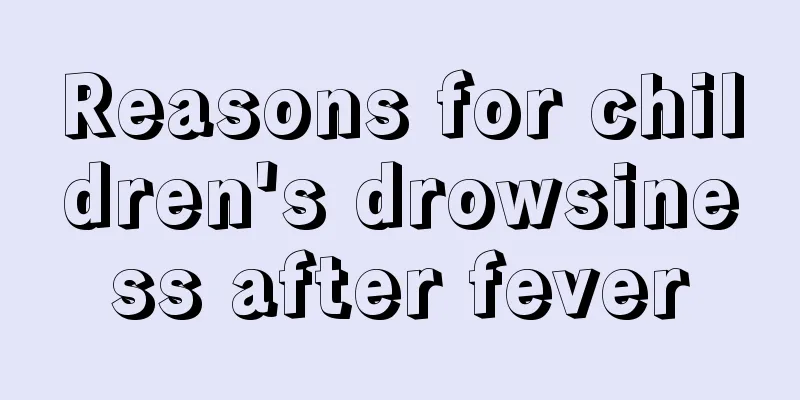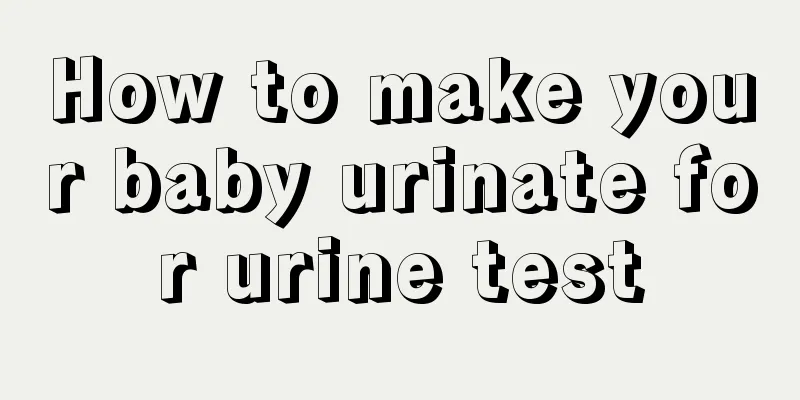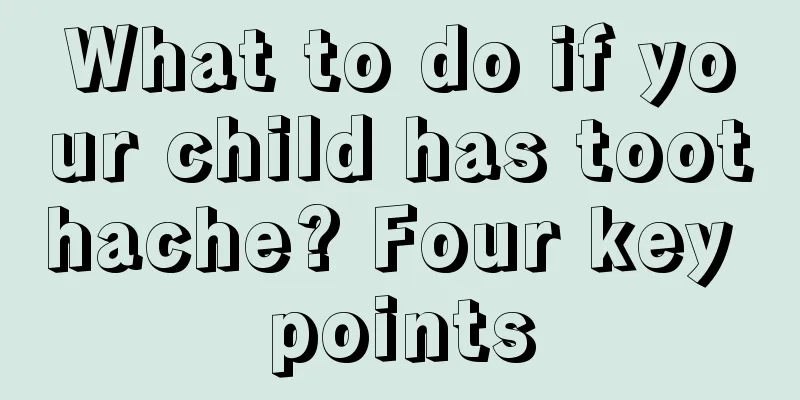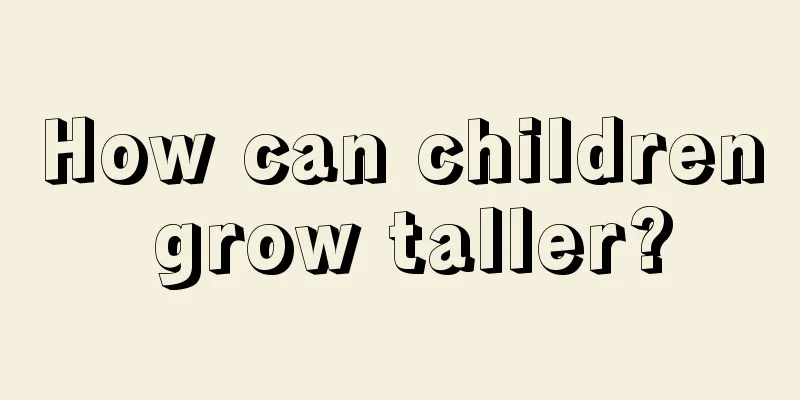Reasons for children's drowsiness after fever

|
It is normal for children to become sleepy after having a fever. This is mainly because fever and colds will cause the body's resistance to decrease, which will cause the child to feel weak and sleepy. As long as we treat the baby's fever symptoms, we can alleviate the baby's sleepiness. When a child has a fever, we should pay attention to keeping the baby warm and treat the fever in time to avoid affecting the child's immunity. Is it normal for a child to be sleepy when having a fever? It is normal for children to feel weak and sleepy when they have a cold or fever. Let your child drink more boiled water, pay attention to rest and keep warm, avoid eating spicy, cold, and hard food, and drink some easily digestible millet porridge. Babies have fever because their central temperature regulation system is immature, and their body resistance is relatively poor, so they are more likely to be infected, so fever is common. There are many reasons why babies have a fever, which can be roughly divided into: 1. External factors. Children's body temperature is affected by the external environment, such as wearing too many clothes when it is hot, drinking too little water, and poor ventilation in the room. 2. Internal factors, such as illness, cold, tracheitis, sore throat or other diseases. 3. Other factors, such as preventive injections, including measles, cholera, diphtheria, pertussis, tetanus and other reactions. If a baby has a fever, the doctor's advice should be followed to accurately find out the real cause of the fever and prescribe the right medicine. Fever is not a disease, it is just a warning sign from the body, telling us that there may be a problem in the body, which may or may not be a disease factor. Why are young children prone to fever? This is mainly because their central temperature regulation system is still immature, and their body resistance is relatively poor, so they are more susceptible to infection, so fever is common. Many physical illnesses can indeed cause fever, such as various viral and bacterial infections and inflammations, tumors and cancers, autoimmune diseases, dehydration, etc. These all require various examinations to be confirmed and require appropriate treatment. Many fevers are caused by non-pathological reasons. What to do if your baby has a fever 1. Reduce the amount of clothes appropriately to help your baby dissipate heat. The traditional idea is that when a child has a fever, he or she should be wrapped tightly with clothes and quilts to "force" the sweat out. In fact, this is wrong. When children have a fever, they will shiver and parents may think that their children have chills, but in fact, this is because their increased body temperature causes convulsions. For example, if the baby wears two pieces of clothing normally, then when he has a high fever, he only needs to wear one piece. If it is a dry and cold winter in the north, you should wear less clothing indoors, but on the way to see a doctor, you still need to keep warm and windproof. Once you arrive at the hospital, you can then wear less clothing to help your baby cool down. Note that if the baby is already sweating, it is best not to take off his clothes immediately to prevent the baby from catching a cold and worsening the condition. After the sweat evaporates, you should help your baby take off his clothes. 2. If the baby's body temperature is above 38.5℃, the baby should be given antipyretics immediately. Taking antipyretics will not affect subsequent examinations in the hospital. Common antipyretic drugs on the market include Tylenol, Motrin, Ibuprofen, etc. Among them, Tylenol is relatively mild and generally takes effect gradually one hour after taking the medicine. Tylenol comes with a dropper for easy feeding. For babies under 1 year old, the dosage is about 0.8 ml per time. If the baby's body temperature is above 39.5℃, you can also choose Motrin and Ibuprofen, which are more effective. Do not take any antipyretic medicine more than 4 times a day, otherwise it will harm your baby's body. |
<<: Why babies don't gain weight
>>: How to correct baby's pigeon feet
Recommend
Tips for children to prevent heatstroke in summer
When the weather is extremely hot in summer, even...
What calcium supplements are good for a five-year-old child?
If you want to supplement your child's calciu...
Introduction to brain development and risk factors during childhood
We often say that children are the flowers of the...
How big is a baby's stomach?
Sometimes babies spit up milk, sometimes because ...
How old can babies eat tofu?
Tofu is a very simple ingredient for us. It can b...
What causes children to have nightmares?
In order to cultivate children's independence...
What are the characteristics of developmental disabilities in children?
Children are always the most beloved ones in the ...
What is the normal height for a 14 year old?
Parents all know that children will stop growing ...
What should I do if my child has diarrhea after eating rice noodles?
I believe that for many mothers who have babies, ...
What should children pay attention to when eating bird's nest
I bought some bird's nests home before. I ori...
What happens if my child has lymph nodes behind his neck?
Children are the cutest angels in the world and t...
How to make porridge for six-month-old baby
With the development of society, more and more wo...
What to do if your child gets a stiff neck while sleeping
Incorrect sleeping posture will cause pain in the...
6 effective sensory training methods for children with autism at home
Autism may be familiar to everyone now, and the n...
What are the good foods for children to eat to supplement calcium?
Calcium supplementation is what parents are most ...









